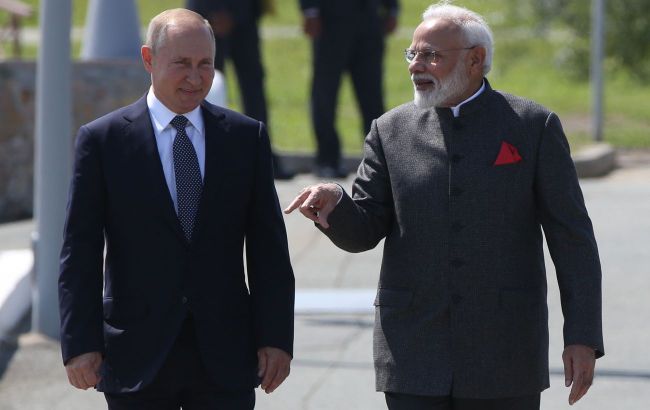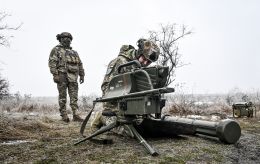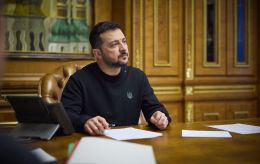India and Russia find way to cooperate around sanctions, details revealed
 Indian Prime Minister Narendra Modi and Russian President Vladimir Putin (Photo: Getty Images)
Indian Prime Minister Narendra Modi and Russian President Vladimir Putin (Photo: Getty Images)
India and Russia have found a way to cooperate despite Western sanctions targeting Moscow. This involves collaboration between New Delhi and the Russian aircraft manufacturer under sanctions, according to Der Standard.
The goal of the cooperation with the Russian aviation company is the production of civilian aircraft. On Tuesday, the Indian state-owned aerospace company Hindustan Aeronautics Limited (HAL) announced the signing of a contract with United Aircraft Corporation (UAC) in Russia.
“This is the first time a full-fledged passenger aircraft will be produced in India,” HAL stated.
The agreement signed in Moscow provides for the production of twin-engine SJ-100 aircraft for domestic carriers. Indian Defense Minister Rajnath Singh called the contract an important milestone for the country’s civil aviation sector, saying it will create jobs and strengthen India’s independence.
Both HAL and the government described the collaboration as a breakthrough for the development of short-haul air transport.
Der Standard notes that despite Russia’s invasion of Ukraine and India’s efforts to strengthen ties with the US and other Western countries, New Delhi continues to maintain political and economic relations with Moscow.
Prime Minister Narendra Modi’s government has so far refrained from condemning Russian aggression, instead positioning itself as a mediator and continuing to purchase Russian oil, according to Der Standard.
Impact of sanctions on India–Russia cooperation
Recently, it became known that Indian refineries have halted new purchases of Russian oil due to recent Western sanctions. However, the refineries are exploring ways to bypass the restrictions, Bloomberg reported.
Last week, the US imposed sanctions on Russia’s major oil companies, including Rosneft and Lukoil.
The EU has also introduced new restrictions against Moscow - on October 23, the bloc approved the 19th package of anti-Russian sanctions, targeting energy, banking, and technology sectors.
Russia’s oil companies and the so-called shadow fleet have also been affected by the EU measures.

